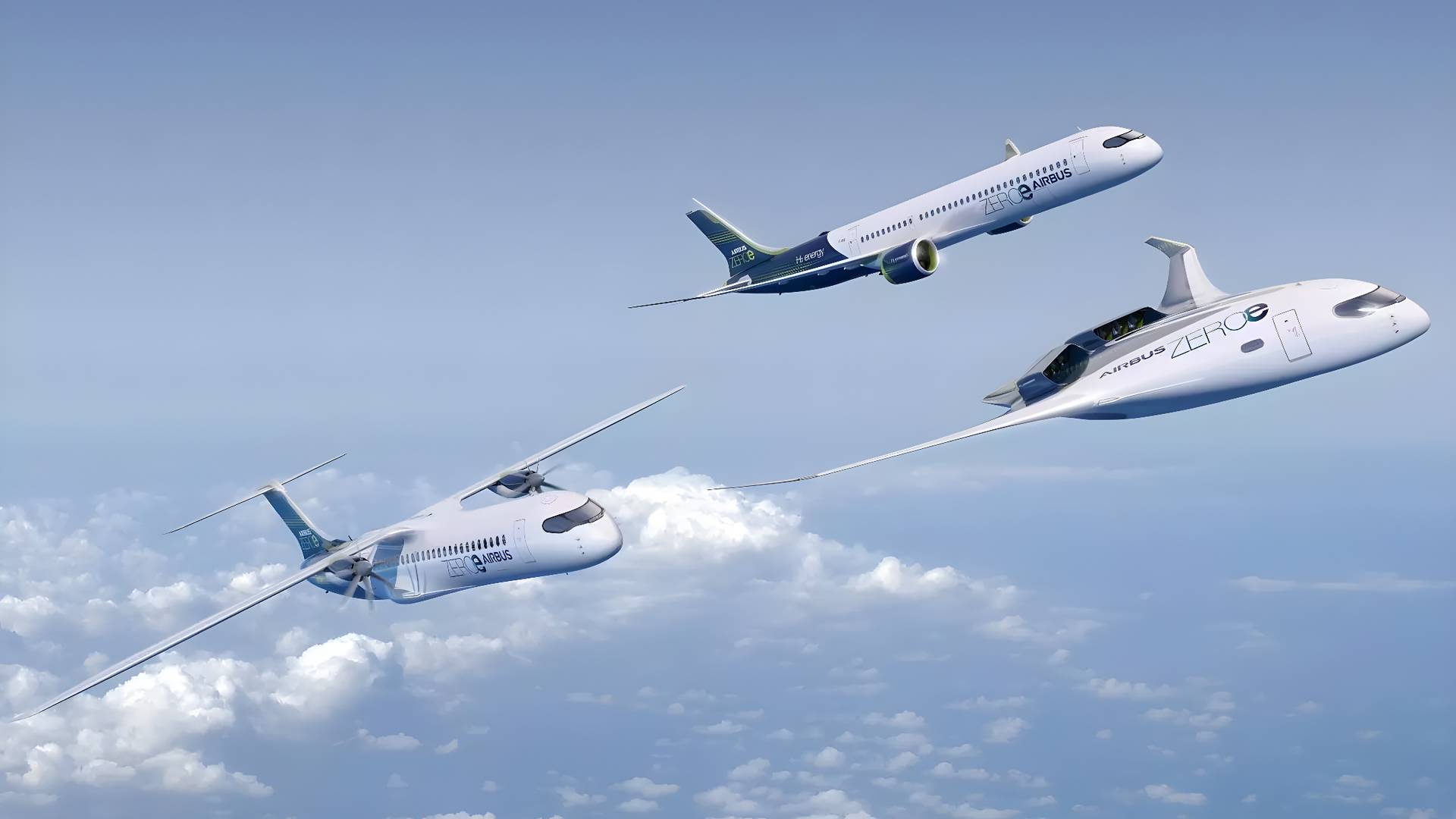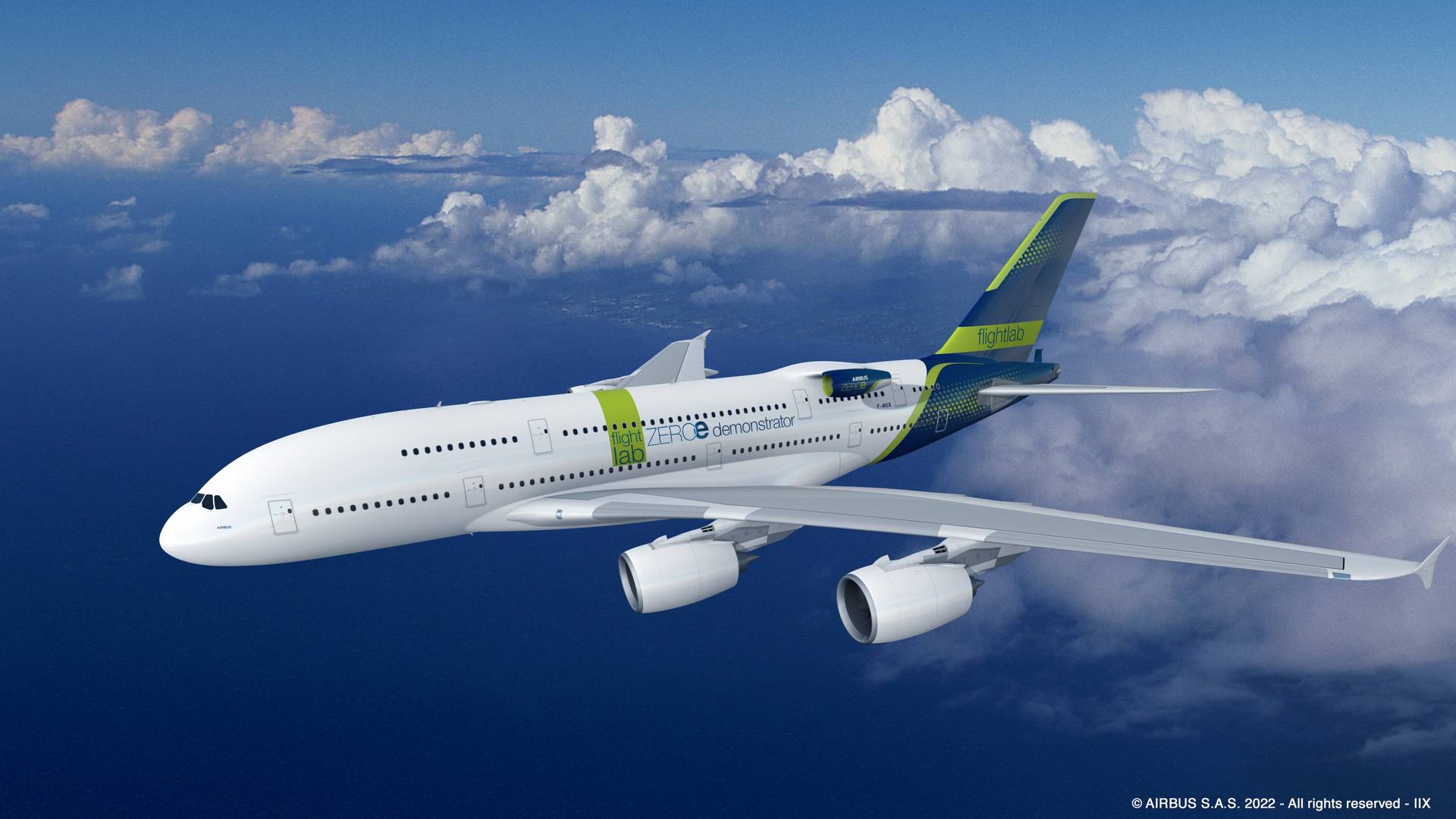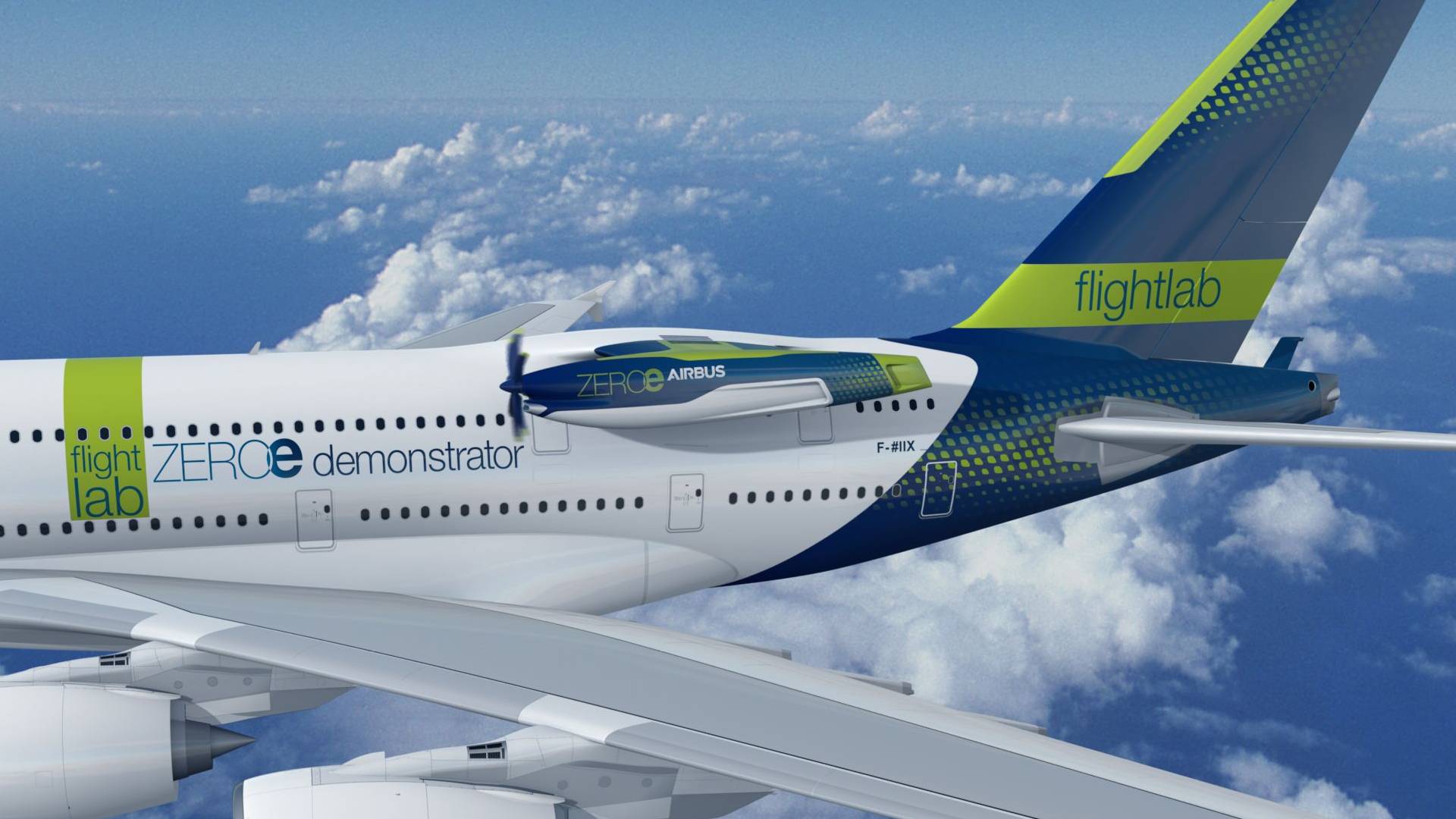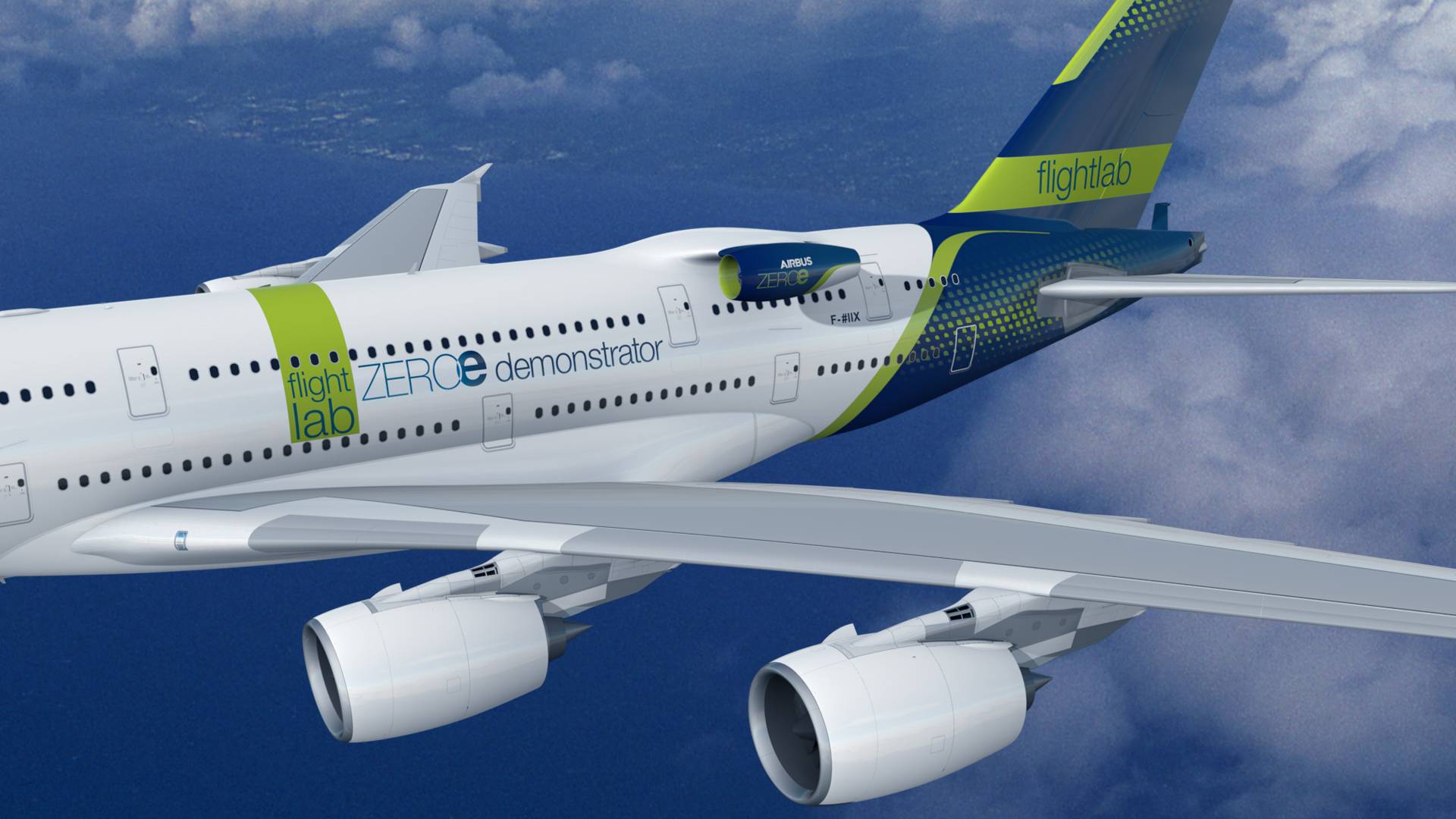Airbus is pressing on with its hydrogen plans but still needs to decide which type of hydrogen propulsion its first such aircraft will use.
In 2020, Airbus announced that its first airliner to use hydrogen will enter service by 2035. At the time, the manufacturer showed concept designs of different sizes, using different propulsion methods.

Hydrogen propulsion generally comes in two forms. One is hydrogen combustion, which works exactly as its name suggests: an engine burns hydrogen instead of fossil fuels. Technologically, this is an easier solution. However, it still involves substantial challenges in handling cryogenic fuels.
The other solution is a hydrogen fuel cell, which can be more efficient. This process generates electricity, which then powers electric motors. It introduces more challenges, including heat management considerations. It is also heavier than hydrogen combustion.

Selecting The First Airbus Hydrogen Propulsion System
Airbus reportedly wants to launch its first hydrogen-powered airliner in 2028 or 2029. In the meantime, the manufacturer will test different configurations and technologies on its ZEROe Flight Lab demonstrator.

This is an Airbus A380 – actually the first A380 ever made. Airbus will fit it with an attach point for a fifth engine, on the upper left side of the rear fuselage. Airbus has published renderings of both hydrogen combustion and fuel cell setups. But we don’t know which will fly first.
Airbus is testing various setups on the ground, but its Flight Lab demonstrator is necessary, among other reasons, to show what kind of contrails hydrogen combustion will generate. This could become a factor in Airbus’ choice of hydrogen setup.

Until the European manufacturer picks one of the two technologies, it won’t know the size of its first hydrogen aircraft, either. At a minimum, it wants a range of 1,000 nautical miles with 100 passengers. Ideally, it would want to double BOTH of these numbers.
Obviously, such a variance describes aircraft with very different roles and very different operators. This means that Airbus still has a lot of work to do before it can engage airline customers in its long-term plans. But “long-term” is now just over a decade away.




4 comments
Iskender Kutlucinar
Dear Alex, which test results would they would be? Jet fuel will burn but Hydrogen will explode. Passengers, Flight crew and surrounding areas can’t survive this type of explosion!
Iskender Kutlucinar
I would say compressed Hydrogen will be dangerous application. What happens if something goes wrong with the plane? I can’t even imagine and discuss the results!
Regards,
Isken.
alex cokonis
The first thing that needs to happen is green hydrogen is to drop to $2/kg. Then with hydrogen you can do anything.
alex cokonis
Based on test results compressed hydrogen is safer than jet fuel.